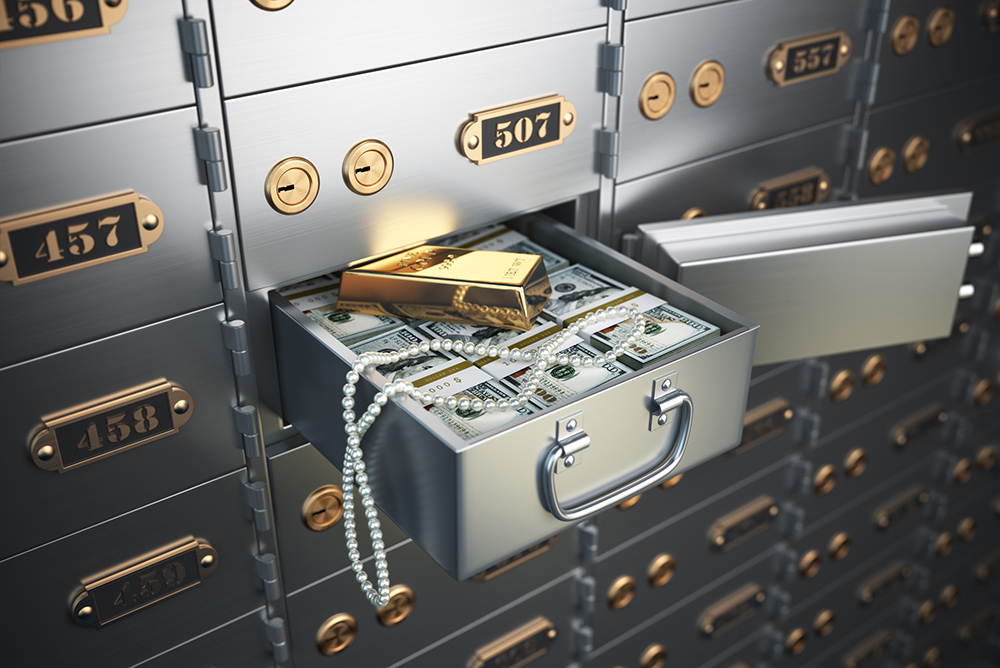By: Harry Yelkowitz
The revelation that “Safe Deposit Boxes Aren’t Safe,” as the New York Times recently pointed out in a headline, can come as a shock to many – and potentially prevent disaster from happening.
There are, as the piece by the Times Stacy Cowley noted, an estimated 25 million safe deposit boxes in America, “and few protections for customers. No federal laws govern the boxes; no rules require banks to compensate customers if their property is stolen or destroyed.”
Safe deposit boxes “operate in a legal gray zone within the highly regulated banking industry,” the piece continued. “There are no federal laws governing the boxes; no rules require banks to compensate customers if their property is stolen or destroyed. Every year, a few hundred customers report to the authorities that valuable items — art, memorabilia, diamonds, jewelry, rare coins, stacks of cash — have disappeared from their safe deposit boxes.”

“The big banks fight tooth and nail, and prolong and delay — whatever it takes to wear people down,” David P. McGuinn, the founder of Safe Deposit Specialists, an industry consulting firm, told the Times. “The larger the claim, the more likely they are to battle it for years.”
The problem is a large one, since safe deposit boxes hold the valuable and often irreplaceable objects people hope to protect. The Federal Deposit Insurance Corporation (FDIC), which provides deposit insurance to depositors in U.S. commercial banks and savings institutions, explains on its web site that “Over time, your valuables change, and so do your options to protect them. Here are a few choices, including safe deposit boxes and home safes, along with suggestions on how to assess each option for your specific needs.” Among the steps is recommends:
* “Think about what should or should not be kept in a bank’s safe deposit box. Good candidates for a safe deposit box include originals of key documents, such as birth certificates, property deeds, car titles and U.S. Savings Bonds that haven’t been converted into electronic securities. Other possibilities for the box include family keepsakes, valuable collections, pictures or videos of your home’s contents for insurance purposes, and irreplaceable photos.”
* “Be mindful not to use your bank safe deposit box to store anything you might need to access quickly or when the bank is not open. That could include passports and originals of your “powers of attorney” that authorize others to transact business or make decisions about medical care on your behalf. For guidance on where to store your original will, check with an attorney about what is required or recommended based on state law.”
* “You’re better off stashing your cash in a bank deposit account, like a savings account or certificate of deposit, than in a home safe or a safe deposit box. Among the reasons: “Cash that’s not in a deposit account isn’t protected by FDIC insurance,” noted Luke W. Reynolds, Chief of the FDIC’s Community Outreach Section. That’s because, by law, the FDIC only insures deposits in deposit accounts at insured institutions and only in the rare instances when a bank fails. A safe deposit box is not a deposit account. It is storage space provided by the bank, so the contents, including cash, checks or other valuables, are not insured by FDIC deposit insurance if damaged or stolen.”
Additional warnings are proffered by Investopedia. “While safe deposit boxes have been offered by banks for about 150 years—with various other types of safekeeping offered long before that—fewer people today are renting safe deposit boxes, opting instead for digital storage and home safes,” it noted. “This can make it easier to find an available box—or more difficult if your bank no longer offers them. Betty Riess, a Bank of America spokeswoman, said demand for boxes has dropped “significantly,” especially among younger customers who are more likely to rely on digital storage, adding that fewer than half of its safe deposit boxes are rented.”
Additional advice was recently offered by the web site tiphero.com, including:
* “Store copies of important documents in multiple locations. Don’t leave the only copy of an important document such as a will, mortgage, title, or insurance policy in your safe deposit box.
* “Seal documents in a zip lock bag or Tupperware for added protection. According to a few articles I’ve read, flooding is one of the most common hazards to safe deposit boxes.
* If given the choice, choose a box that is higher up off the floor to give you greater protection from flooding.”
Though safe deposit boxes are supposed to be a more secure way to protect your valuables, they are not immune to all disasters, noted valuepenguin.com. “Take extra precautions to protect the contents of your box. For example, it is a good idea to seal documents and other items susceptible to water damage in ziplock bags.
The site also urged those with boxes to “keep an inventory of the box’s contents and take photos of belongings you place inside the box. This way, it will be easier to recover your items should there be an unexpected incident. Unlike money in your bank deposit account, the contents of your safe deposit account are not FDIC protected. Therefore, it may be in your best interest to insure the contents of your box as well.”




